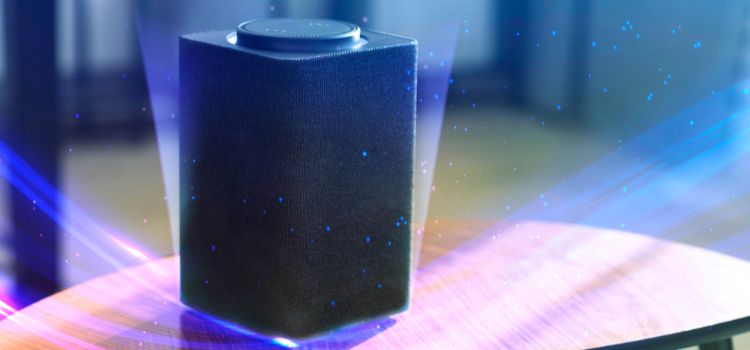As an Amazon Associate I earn from qualifying purchases.
The need for air purifiers has increased in the modern world as concerns about indoor pollution have grown. These gadgets are becoming increasingly popular among people looking to improve the air quality they breathe at home or work. But among all the excitement, a relevant question arises: are air purifiers a waste of money? Let’s investigate this further to get the real story behind the effectiveness and worth of air purifiers.

Introduction Clearing the Air
Air purifiers have become a popular option in a world where indoor air quality is becoming a more critical problem. However, doubts about their efficacy and financial usefulness continue. This extensive guide aims to debunk the misconceptions about air purifiers and provide fact-based information about their effectiveness.
How Air Purifiers Work
Air purifiers pull in air from the outside world and pass it through filters designed to capture contaminants such as dust, pollen, pet dander, and pollutants. These filters may include High-Efficiency Particle Air (HEPA) filters, activated carbon filters, or UV-C light technology, each targeting specific airborne particles.
What Are Air Purifiers?
The purpose of air purifiers is to eliminate impurities and toxins from indoor air. To improve air quality and lower possible health concerns, they often use filters or other technology to trap particles, including dust, pollen, pet dander, smoking, and volatile organic compounds (VOCs).
How Do Air Purifiers Work?
Air purifiers use different mechanisms to function, depending on the kind and design. A high-efficiency particulate air (HEPA) filter is one of the most popular filters, which can effectively capture particles as tiny as 0.3 microns. Other methods, including UV-C light and activated carbon filters, provide thorough cleaning by focusing on specific contaminants or microorganisms.
Air Purifiers Are Ineffective
Despite widespread perception, numerous studies have shown that air purifiers successfully reduce indoor air pollution. HEPA filters, in particular, may effectively filter out airborne particles, such as infections and allergens, enhancing respiratory health and general wellbeing.
Air Purifiers Are a Waste of Money
Although some may think air purifiers are unnecessary, the long-term advantages exceed the initial cost. Air purifiers save medical expenses and enhance quality of life by preventing allergies, respiratory disorders, and other illnesses by eliminating dangerous particles from the air.
Opening Windows Is Sufficient for Air Quality
Even though ventilation is necessary to preserve the air quality inside, it may not be enough to address all the causes of pollution. Pollutants from automobiles and industry, for example, may enter inside rooms via outside air. Regardless of the weather, air purifiers provide cleaner air by adding an extra filtration layer.
Benefits of Air Purifiers
Improved Respiratory Health
Air purifiers may dramatically lower the incidence of respiratory conditions like asthma and allergies by eliminating allergens, irritants, and other pollutants from the air. People with compromised immune systems or those who already have respiratory disorders would particularly benefit from this.
Enhanced Comfort and Wellbeing
An atmosphere that is healthier and more pleasant to live in allows for improved sleep, higher productivity, and general wellbeing. This is made possible by cleaner air. Additionally, air purifiers may eliminate offensive scents, making an interior space seem cleaner and cozier.
Protection Against Airborne Pathogens
Recent worldwide health issues, including the COVID-19 pandemic, have highlighted air purifiers’ capacity to eliminate airborne germs and viruses. To stop the transmission of infectious illnesses, germs may be efficiently captured and neutralized via UV-C technology and HEPA filters.
Choosing the Right Air Purifier
Consider Your Needs
When choosing an air purifier, consider room size, particular pollutants of concern, and desired features. HEPA filters are advised for air purification; specialty filters could be needed to filter smoke, smells, or volatile organic compounds.
Evaluate Performance
To determine how well an air cleaner removes airborne particles, look for models with high Clean Air Delivery Rate (CADR) ratings. To guarantee optimum performance and convenience, consider each model’s noise level, energy efficiency, and maintenance needs.
Seek Expert Advice
If you need help determining which air purifier is appropriate for your requirements, consult professionals or reliable sources for advice. Independent testing agencies, accredited specialists, and customer evaluations may provide insightful analysis and suggestions to assist you in making an educated choice.
Conclusion
In summary, the data strongly indicates that air_purifiers are valuable and effective in improving indoor air quality and respiratory health, even if the question of whether they are a waste of money is still up for dispute. Customers may decide whether to purchase air_purifiers by knowing how they operate, balancing the advantages against the disadvantages, and clearing up common myths. Air_purifiers have indisputable advantages, whether they reduce allergy symptoms, eliminate smells, or breathe cleaner air.
FAQs
Air_purifiers enhance indoor air quality and respiratory health by eliminating allergens, contaminants, and smells.
An air purifier has initial expenditures, but when you consider its long-term advantages, the costs of continuous operation, such as power use and filter changes, are relatively small.
Indeed, by eliminating allergens from indoor air, such as dust mites, pet dander, and pollen, air_purifiers help allergy patients feel better.
Air_purifiers may provide further advantages by eliminating allergens and pollutants from an area that may not be well aired, even if enough ventilation is still necessary to preserve the air quality.
When used correctly and maintained according to manufacturer instructions, air_purifiers pose few health and safety hazards. However, best practices must be adhered to for safe and efficient functioning.
Indeed, air_purifiers with activated carbon filters may effectively neutralize pet scents and other offensive aromas, leaving the air feeling clean and fresh.
As an Amazon Associate I earn from qualifying purchases.








